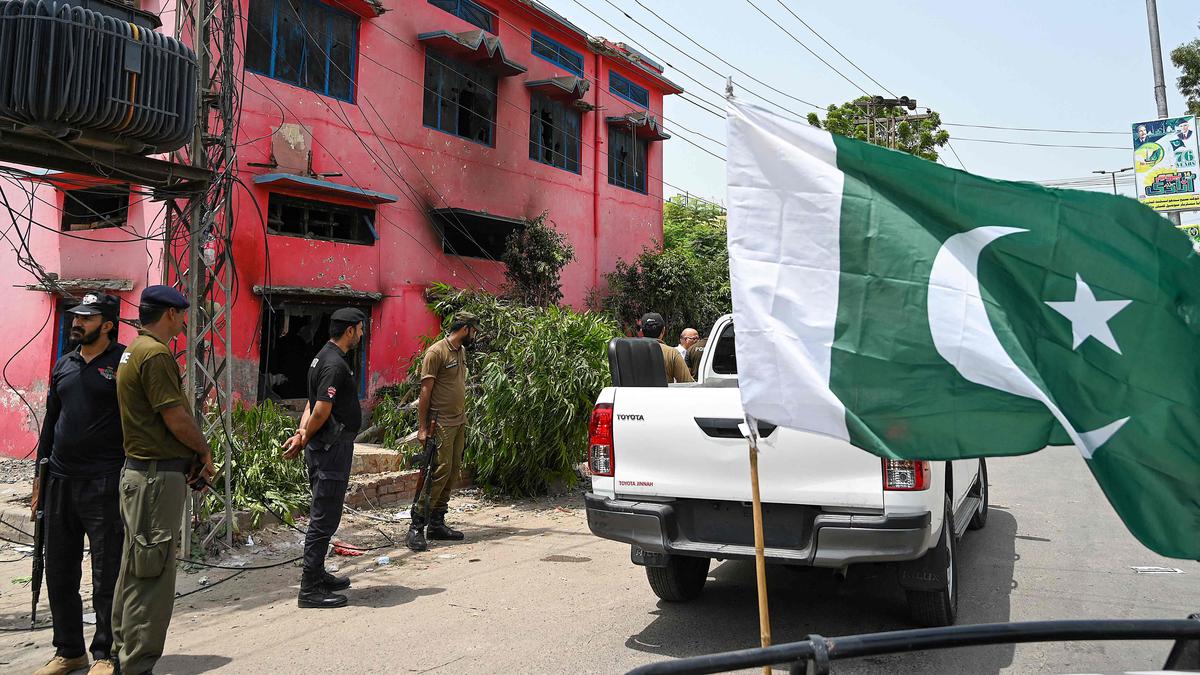
The abyss of religious extremism Premium
The Hindu
To begin with, hadiths and fatwas that violate the letter or spirit of the Koran should be questioned and disregarded
The horrific visuals of burning churches in Faisalabad, Pakistan, that went viral last month reconfirmed the rapid descent of the country into the abyss of religious extremism. At last count, 21 churches, dozens of Christian homes, and hundreds of Bibles had been sacrilegiously torched.
This horrendous barbarity was allegedly perpetrated by the extremist group, Tehreek-e-Labbaik Pakistan (TLP) on the basis of the rumour that torn pages of the Koran with blasphemous words scribbled on them were found near a Christian colony. Shockingly, this disinformation was diffused through mosque speakers.
The situation was redeemed to some extent after several Pakistani clerics mustered the moral courage to condemn the violence. The chairman of the Pakistan Ulema Council Tahir Mahmood Ashrafi, in a televised press conference, apologised with folded hands to the Christian community.
He said, “We are ashamed; we seek forgiveness (hum sharminda hain; hum ma’afi ke talabgaar hain).” Another cleric, Mufti Taqi Usmani, called the burning of churches as “highly condemnable (intihaa’i qaabil-e-muzammat).”
The incoming Chief Justice of Pakistan, Justice Qazi Faez Isa, for his part, sent out a strong message to the biased judiciary of his country by personally distributing food packets to the Christians of the violence-hit Jaranwala tehsil in Faisalabad district. He put the onus on common Muslims to protect non-Muslims and their places of worship from the extremists.
In stark contrast, only a handful of Indian clerics came forward to condemn the church burning — Muhammad Rahmani of the Abul Kalam Azad Islamic Awakening Centre, Waris Mazhari, Abdul Khaliq Nadwi, and Mufti Athar Shamsi of the Kairana-based Al-Quran Academy.
Hardly any Muslim political party, “public intellectual”, or religious organisation barring the Jamat-e-Islami Hind denounced the anti-Christian violence. Their cold aloofness is unreasonable and callous because in 2017, the Jamiat Ulama-e-Hind (JUH) had reportedly displayed its humanitarianism by seeking permission from the Home Minister of India and the Bangladesh government to carry relief material to the camps of Rohingya migrants in Cox’s Bazar and even “build a colony for the Rohingya Muslims”.

Under the Ganitha Kalika Andolana (GKA) initiative, a maths learning movement supported by the Government of Karnataka, In 2024-25, the Gram Panchayat level Maths Contests were conducted across 28 districts in Karnataka. Around 5,95,517 children from 26,188 schools in 4,890 Gram Panchayats were assessed in about 30 days to address the gaps in numeracy levels of children studying in government schools.

Controversies surrounding BIFFes did not affect the festival’s spirit, as people beat the scorching heat to watch films from different parts of the world. As is the trend every year, senior citizens and college-goers attended the festival in the majority as BIFFes witnessed a slight increase in footfall this year, compared with the previous edition. During the closing ceremony of the 16th edition of BIFFes, organisers, led by Karnataka Chalanachitra Academy chairman Sadhu Kokila, gleefully mentioned the massive turnout on the final day.











